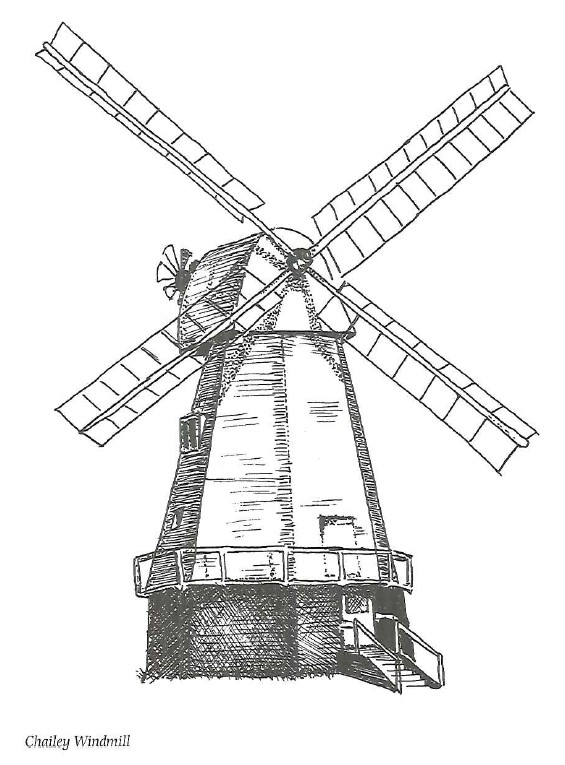Plenty of energy is required if you come here on a Good Friday because you may be required to join in the village’s tradition of skipping outside The Rose Cottage pub. Not the conventional sort of solo skipping either … here the participants form a line while a long rope is swung over their heads and hopefully under their legs by two people at either end.
This particular rite of spring is believed to have its origins in the rope with which Judas Iscariot hanged himself after the betrayal of Christ. In a good year Alciston will have as many as 20 people jumping in unison in the lane beside the pub. As its name implies, The Rose Cottage was a private house until it started to quench the thirsts of the locals in the 1890s.
A’ston was the pronunciation for this downland village in the old days when it had a form of weather lore as reliable as any present forecast by satellite and computer, even if it gave slightly shorter notice of when to go out with your brolly:
“When Firle Hill and Long Man wear a cap, We at A’ston gets a drap.’
The single street of old thatch and timber houses ends at the foot of the Downs in a duck pond, the church and a farm which incorporates the remains of a 14th century abbey. This dependency of Battle Abbey was once a sort of holiday camp for the monks who came here for rest and retreat. The remains of their dovecote have been restored by villagers.
The medieval tithe barn is enormous and still, happily, serving the purpose for which it was built. It is about 170ft long and is claimed to be the largest tithe barn in the county. Somebody once counted the number of tiles in the roof – there are more than 50,000 of them.
Perhaps it was the timeless, slightly other-worldly charm of Alciston that attracted Professor Caroline Spurgeon to make her home here in the 1930s. She was an authority on English literature and especially on the writer, artist and mystic
William Blake. Besides many articles and essays, she wrote a penetrating analysis of mysticism in English poetry.
